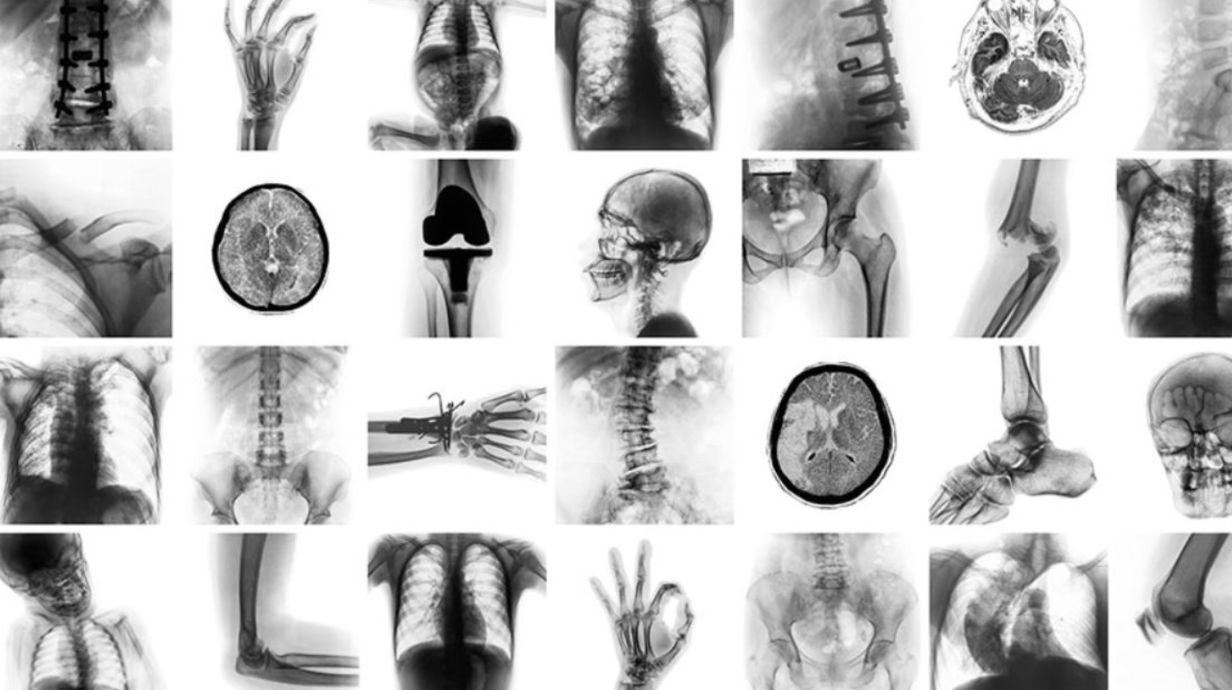Radiologic Sciences, B.S.
Learn to perform medical imaging procedures to diagnose disease and injury.

"HPAO has helped me by giving me the opportunity to grow as a person both mentally and physically. My advisor gives me so much insightful advice every time I walk into his office!"
Nina Patel ('26)
B.A. in Allied Health Studies
About Bachelor of Science in Radiologic Sciences
At the University of Mississippi, Radiologic Sciences is a 2+2 program that is not completed at the UM-Oxford campus. Traditionally, UM students prepare to complete two years of coursework then apply to University of Mississippi Medical Center's Bachelor of Science in Radiologic Sciences program in Jackson, MS. Acceptance into the final two years of clinical coursework is competitive and class size is limited. Licensed professionals are then able to seek further certification and specialization in modalities such as: magnetic resonance imaging (MRI), sonography, radiation therapy, nuclear medicine, or mammography among others.
While at UM, you will be enrolled in the Allied Health Studies major and be assigned an academic counselor who will ensure that you have the pre-requisite courses needed to be able to apply to the radiologic sciences schools of your choice. Pre-requisite requirements are determined by your schools of interest. Our office not only keeps you on track with pre-requisites, we provide tutoring, application assistance, mock interviews to help prepare for the actual interview, and help with locating schools based on your criteria.
Incoming freshman will select the Radiologic Sciences emphasis for Allied Health Studies on their UM application. Others complete the short online form to be assigned to an HPAO advisor and notified about HPAO programs and services.
The Value of an Allied Health Studies Degree
Allied Health Studies majors gain the ability to understand human behavior, communicate complex ideas, think critically, interpret data, and engage with a diverse world. These skills prepare our majors to enter any allied health profession and become leaders of the future.
What is Radiologic Sciences?
Utilizing specialized imaging equipment and advanced computer technology, the radiologic technologist is responsible for performing a variety of challenging and interesting examinations on a diverse patient population. Radiologic technologists work closely with other members of the health care profession and are vital in providing the images necessary for diagnosing disease and injury.
Radiologic sciences is a term used to describe the related fields pertaining to imaging techniques for medical diagnosis, evaluation, and treatment - not only diagnostic radiology, but also bone densitometry, cardiovascular/interventional radiography, computed tomography (CT), magnetic resonance imaging (MRI), mammography, nuclear medicine, radiation therapy and sonography.
- For more information regarding radiologic technologists' salary, job outlook, and resources, visit Explorehealthcareers.
- For job outlook information for radiologic and MRI technologists, visit the Occupation Outlook Handbook.
On this Page…
Program Information
Degree
B.A. in Allied Health Studies
Emphases
Radiologic Sciences
Required Credit Hours
120
Program Type
Major
Program Location
School
Duration
4 years
Degree Requirements
Find out about credit hour and course requirements from the 2025-26 academic catalog.
Students in the College of Liberal Arts earning the B.A. degree have a common set of 48-50 hours of general education. The specific courses taken to complete the categories of general education may differ between majors.
Categories of General Education:
- First Year Writing I, II
- English Literature Survey
- Modern or Ancient Language
- History
- Additional Humanities
- Fine or Performing Arts Appreciation
- Mathematics
- Social Sciences
- Natural Sciences
To see the details for these general education requirements, visit the UM online catalog or the degree sheet attached at the top of this webpage.
Students in the B.A. in Allied Health Studies program complete 30-36 credit hours of courses for the major, additional requirements, and a required minor field of study.
- Bisc 210: Microbiology (or any Bisc 300 level or higher)
- ES 396: Allied Health Terminology OR Clc 201: Medical Terminology
- Spch 102: Fundamentals of Public Speaking OR Spch 105: Business and Professional Speaking
- One of the following advanced communication courses
- Spch 305: Collaborative Communication
- Writ 300: Rhetoric of Professional Communication
- Writ 310: Writing in Professional Contexts
- Writ 320: Contemporary Writing Studies
- Writ 380: Scientific Writing
- Writ 399: Special Topics
- Writ 410: Grant Writing
- 5 of the following electives, depending on your allied health field and interests
- Anth 349: Medical Anthropology
- IMC/Jour 585: Health Communications
- NHM 325: Family Relations
- NHM 328: Child Development
- Phil 321: Ethics
- Phil/Rel 328: Biomedical Ethics
- Soc 301/G St 303: The Family
- Soc 310: Sociology of Disability
- Soc 311: Social Problems
- Soc 333: Sociology of Delinquency
- Soc 345: Population Trends and Problems
- Soc 353: Community Development
- Soc 370/Hon 315: Population Health
- Soc 413/AAS 413: Race and Ethnicity
- Soc 427: Social Stratification
- SW 326: Gerontology
- Any 300 level or above biology course
- Any 300 level or above psychology course
- Any 300 level or above exercise science course
Additional requirements for the program are:
- Psy 201: General Psychology
- One of the following
- Psy 301: Developmental Psychology
- Psy 311: Psychopathology: An Integrative Approach
- NHM 323: Human Growth and Development
HPAO Opportunities
HPAO Video
Watch the video below to learn more about HPAO.
Next Steps
Explore Affordability
We have a variety of scholarships and financial aid options to help make college more affordable for you and your family.
Apply to the University of Mississippi
Are you ready to take the next step toward building your legacy?
